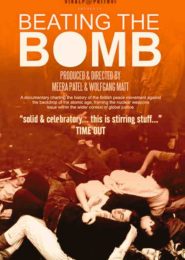The Psychology of Racism in Jim Crow America (2021)
In The Psychology of Racism in Jim Crow America, we delve into the dark and complex history of racial prejudice during the Jim Crow era. This thought-provoking documentary aims to dissect the psychological, sociological, and historical underpinnings that fueled racism and violence against African Americans.
The film centers around the gruesome phenomenon of lynchings, using these horrific events as a lens to explore racism more broadly. By zooming out from individual acts of violence, we uncover the intricate web of beliefs, attitudes, and psychologies that shaped the actions of perpetrators.
Here are the key points explored in the documentary:
- Justifications and Rationalizations: We examine the various justifications used to legitimize violence against African Americans. Whether it was economic competition, fear of African American empowerment, or deeply ingrained cultural attitudes, these factors contributed to the perpetuation of racism.
- Psychological Impact: The film sheds light on the psychological toll of racism. How did the perpetrators justify their actions? What cognitive processes allowed them to dehumanize their victims? By understanding the psychology behind racism, we gain insight into the roots of hatred and violence.
- Societal Conditions: The Jim Crow era was marked by systemic segregation and discrimination. The documentary explores how these societal conditions influenced individual behavior. From legal segregation to everyday microaggressions, racism was deeply entrenched in American society.
- Legacy and Reflection: The Psychology of Racism in Jim Crow America prompts viewers to reflect on the lasting impact of this dark chapter. How do historical traumas continue to shape our collective psyche? What lessons can we learn to prevent such atrocities from recurring?
Through powerful storytelling, archival footage, and expert interviews, the documentary paints a vivid picture of the psychological landscape during Jim Crow America. It challenges us to confront uncomfortable truths and recognize the enduring effects of racism on our society.




